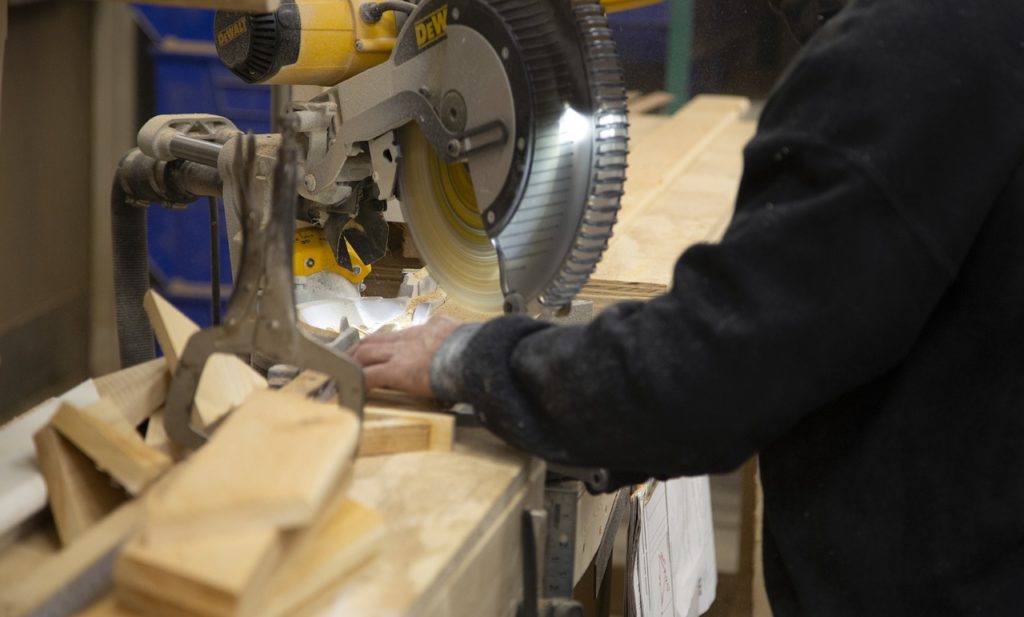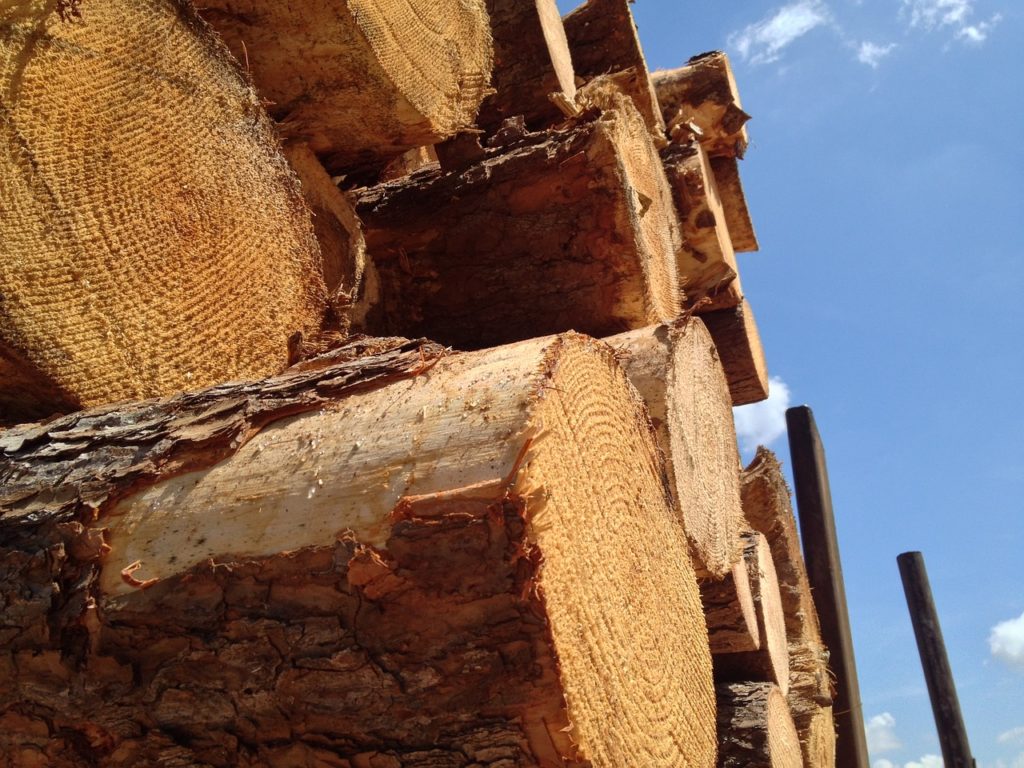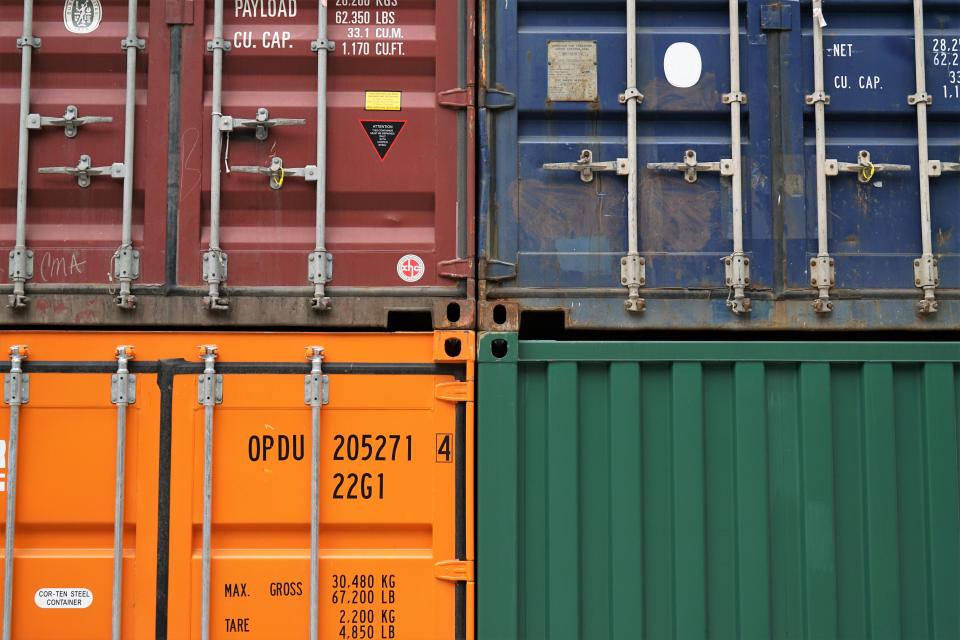For those who enjoy woodwork as a hobby, one of the most important components of your work is the timber you use. Different kinds of wood give different results; Some are more suitable for certain tasks than others, and some give very good results, but cost an arm and a leg. That’s the challenge.
Don’t worry, in this blog, we will share the information about Timber for construction. Besides, we will also share the channel of Timber Wholesale Sydney.
We believe that the content can solve most of your problem
The blog will conclude the following topic:
Different properties of timber
The commonly used type of timber
Where to make the Timber wholesale Sydney?
Difference properties of timber
The differences between all these types of wood can be explained by variations in the following properties.
Density
Different kinds of timber have different densities, which means that they weigh more or less per cubic meter (or pound).
Different overall qualities can be inferred from this since it is easier to make big objects out of heavier wood than lighter wood; however, most woodworkers actually prefer lighter wood.
Strength
Different kinds of timber can also be said to have different strengths, which is the amount the wood resists deformation under stress or tension.
Different qualities can be inferred from this; stronger wood is better for things that are subjected to strain, such as picture frames and chairs, while lighter-weight woods are preferred by some for certain projects.
Hardness
Different kinds of wood have different levels of hardness, which is the ability to resist abrasion or wear. Different qualities can be inferred from this;
Harder woods are better for things that are subjected to friction, such as chopping boards and kitchen utensils, while lighter-weight woods are preferred by some for certain projects.

Elasticity
Different kinds of timber have different levels of elasticity, which is how much a material will spring back after being deformed by stress or strain.
Different qualities can be inferred from this; stiffer woods are better for things that require a finer degree of precision, such as cutting boards, while softer woods are preferred by some for certain projects.
Workability
Different kinds of wood have different levels of workability, which is how easily a material can be worked with hand tools such as saws and chisels, or power tools such as routers and sanders.
Different qualities can be inferred from this; easier-to-work woods are better for beginners, while harder-to-work woods are preferred by some for certain projects.
Different qualities can be inferred from this; harder woods are better for things like chopping boards, while softer woods are preferred by some for certain projects.
Different kinds of wood can also be said to have different overall qualities, which is the overall feel or appearance that the timber gives when finished into a project.
The commonly used type of timber
F17 timber
What’s F17 Timber?
F17 timber is one of the most popular and sought-after materials. It appears in many designs, renovations and furnisher shops with its beautiful natural color and elegant texture. F17 timber construction material has been widely used for decades and it remains a hot selling item even today. The demand for F17 timber keeps going up with a huge market share all over the world.
How to Identify F17 Timber?
F17 timber is only available in a certain range of products, so it might be difficult to identify. General speaking, F17 timber has the following characteristics:
– It has a distinct grain pattern which makes it one of a kind. You can hardly find two F17 timbers with same grain pattern.
– F17 is very durable and resistant to climate change and the seasons. Its performance is better than that of outdoor wooden materials or concrete material.
– It has a natural and environmental-friendly feature which allows it to blend in easily with any surrounding decoration. It can be used in any room condition.
– F17 timber construction material is strong and solid, so it can be used for a long time without splitting or cracking. It has no special requirement on the humidity of environment.
Is F17 Timber Expensive?
F17 timber is not cheap! However, its quality is guaranteed by the 10 years warranty, which is the only warranty among all wood-made products. F17 timber construction material has a great strength, high durability and long service life. We are sure that it’s worth investing for your house or business place!
How to Maintain F17 Timber?
Regularly clean F17 timber with damp cloth to remove dirt on its surface. It can be painted or refinished immediately when finished cleaning.
What is the F17 Timber Fabrication Process?
F17 timber construction material fabricators usually adopt advanced and professional equipment and technology to produce high quality products for its customers. The fabrication process is as follows:
– Automatic planing machine with precise cutting system
– Precision shaping profile cutting
– Automatic sanding machine with different degrees of roundness for F17 timber profiles
– Automatic high frequency heating system to prevent cracking or splitting during the cold season.
– High density glue automatic injection for F17 timber panels
– Special anti-impact mechanism to avoid damage during transportation process
· Transparent, strong, clean and smooth F17 timber surface;
· High strength, no cracking, no splitting;
· Uniform color, high flexibility;
· Great weather-proof performance (low deformation under severe climate changes);
· Great environmental friendly feature (no chemical substance polluting to environment);
· Resistance to acid and alkali corrosion.
F17 timber treatment
What is F17 timber treatment?
F17timber treatment is a process to pressure treat wood in order to preserve and protect it from wood rot and insects. F17 contains chemicals such as Alkaline Copper Quaternary (ACQ), copper naphthenate, and hydrogen chloride copper preservatives. F17 is currently the most common type of FHA-approved treatment. F17 is registered with the EPA and has been tested to be non-toxic. F17timber treatment was approved by the FHA (Federal Housing Administration) in 1987 but only became the most common type of FHA approved treatment after 2005 when Sen Sherrod Brown extended FHA guidelines for termite protection by requiring F17 treatment. F17 is approved for most residential wood projects, but not in lakes or wetlands. FHA also does not recommend F17 for all types of utility poles; this is due to the possibility that F17 could make it difficult to accomplish repairs in the future if needed.
F17timber treatment must be applied by an FHA-approved treatment company to FHA-approved wood. F17 is applied either hot or cold, depending on the time of year it’s being done, and depending on if it’s summer or winter. F17 is also applied differently in different climates. F17timber treatment companies must be FHA approved before applying F17.

H2 timber
H2 Timber Material
H2 timber material is the name for a group of products, widely used as exterior flooring materials. It can be adjusted to suit different sections and environments without affecting its structural properties as well as that it will not rot or decay. How? H2 Timber has been specially treated with cross-linked polymer coating which creates an impenetrable barrier against any harmful water seepage, maintaining its aesthetic appeal.
H2 Timber Feature
H2 timber material is a product that has a ‘closed-pore’ structure. It can even be described as being manufactured in two sections to eradicate the risk of rot or decay because both are protected by EFC technology. The first part is the uppermost layer which gives it an attractive appearance, together with that its ‘closed-pore’ structure prevents timber flooring from absorbing water. And then the bottom part of H2 Timber is manufactured to prevent moisture seeping through via a waterproof sub-floor underlay making it ideal for use in wet areas such as bathrooms, shower rooms or exterior flooring of a house.
H2 Timber Treatment
As discussed earlier, H2 timber material is made from long-lasting EFC cross-linked polymer coating material which makes it highly durable and resistant to scratches on its surface. It has a Class 35 rating under the Technical Requirements for Plastics in Building Regulations.
Anyone considering h2 timber material for their exterior flooring should remember not to use it in wet areas, since there are other products that are suitable instead of the flooring. Also, H2 Timber should never be nailed or screwed down onto the concrete. H2 Timber is best positioned using appropriate adhesives and sealants which are easy to use and designed specifically for outdoor flooring.

Top view of diverse people of creative team group using smartphone, mobile phone, tablet and computer laptop while meeting. Overhead view of asian young creative start up meeting with wide angle view.
H3 Timber
H3 timber material
H3 is a specialty timber available in limited supply and is prized by the local market. H3 Timber (Triploid or Triplication Hardwood) resemble Oak, although Oak itself has also been used to produce H3 Timber.
H3 is a special hardwood and it’s nature is due to the fact that H3 trees spend their first 3-5 years underwater, and therefore develop with thicker wet wood, which when harvested and kiln dried becomes very dense.
H3 Timber is only suitable for certain uses such as boatbuilding or outdoor furniture because H3 timber is both expensive and difficult to work with.
H3 timber features
This timber is prized for boat building because its dense nature means that there is less water absorbed into the wood, meaning H3 boat builders can include more internal fittings such as cup holders without worrying about rot. H3 Timber also has a high resistance to termites, making it an important feature for outdoor furniture.
H3 TImber can also be distinguished by its golden yellow grain pattern.
H3 timber treatment
Because H3 Timber is so dense it means that any wood borers or termites are unable to penetrate into the wood because they cannot break through the outer shells of the wood cells. To protect the H3 Timber from water damage, H3 timber treatment is necessary, it needs to be sealed and painted.
H3 Timber is not suitable for indoor use and will need to be treated before becoming resistant against bugs and other vermin.
Timber treatment
Treatment is undertaken in different kinds of timber to make structures more suitable for use, or to preserve them against degradation. That’s why when you search the relative information about Timber Treatment, you may find the keywords like F17 timber treatment, h2 timber treatment or h3 timber treatment, and so on. This includes the conversion of natural materials (such as wood) into more useful products.
It is usual in most countries that work on pre-treated wood is regulated by law in some way or another – in most cases, this means that there are legally recognized processes for treating wood that is to be used in a specific context.
In some cases, treatment may be undertaken with the intent of modifying or controlling its properties – in most cases, this is done by impregnating the wood once it has been dried and either steamed or heat-treated.
Conventional wood treatments fall under the following methods
Pressure treatment
Pressure treatment is the best way to protect any wooden materials from insect attack and decay. There are many different types and methods of pressure treatment, including: “Wood-preserving chemicals that are pumped into the heartwood of a log or section of lumber to protect it from insect attack and decay”
Methyl bromide fumigation
Methyl bromide fumigation is one of the most common methods. It is “a process in which methyl bromide gas, dissolved in methanol, is pumped into wood packaging material or wood products so that the entire volume of the container is filled with the poisonous methyl bromide gas”
Fire retardant
Fire retardant is another common method. It is “a chemical agent that slows or prevents fire, and happens to be toxic to most organisms”. It comes in four classifications: R1 for normal combustibility, R2 for heavy combustible, F1 for ordinary combustibility and F2 for highly flammable
Paint and stain
Paint and stain are also good methods to protect the wood. Paint is used primarily for outdoor structures. It fills in any cracks or spaces in the wood’s pores that could cause water damage, which slows down decay and insect infestation. Stain is used primarily for indoor structures, such as cants and utility poles
Impregnation
Impregnation is the method where “a treatment to increase the conductivity of wood against water” is applied. It involves saturating the wood with a substance that will not allow water droplets to form on the surface while allowing it to breathe and expand and contract naturally. Afterward, the wood is then treated with a “respirator and light coatings that add to its durability”
Where to make the Timber wholesale Sydney?
What comes to mind when you buy timber in bulk in Sydney?- Where to buy timber?
That’s one of the most common questions asked by people who need to buy more than 100m² of timbers- Where to make timber wholesale, where to find timber wholesalers? If you are running a business involved in woodworking or building, then a large number of timbers can be really hard to buy. You also need to buy high-quality timbers as you will be using those for a long time and quality matters in that case.
Everyone knows where they can buy small amounts of different kinds of wood and woods furniture and things like that, but if your business really depends on it, then wholesale suppliers can offer discount prices. But you need to buy in bulk, of course. If you buy in bulk and in large amounts, the price is lower and this will save your money.
In this part of the content, we have made some researches for you! Through the content we provide below, you can find various reliable channels to make Timber Wholesale Sydney.

1. Pangea
Pangea is your No.1 choice for product sourcing in Australia. their business range from Timber to mosaic tile. That’s why you can trust them to help you find reliable timber wholesalers. With factory partners in China, the United Kingdom, Hong Kong and other markets you can be sure your products are sourced from the right place.
Pangea’s mission is to be a sustainable, ethical sourcing provider who helps our customers save over 20% on their orders
Pangea’s vision is to help Australian businesses by providing sustainable, high-quality products at the best possible price

2. Sydney Timber Supplies
With over 100 years of shared timber experience and 50 in operation, we have seen it all. No matter what your project – from new flooring for a home to some decking or building an extra-special cubby house just right; you can rely on our expertise when choosing the perfect wood best suited!
Our connections in the industry ensure that we can supply you with quality timbers at wholesale and retail prices. We would not make you disappointed when it comes to timber wholesale. We also offer great value for your money by offering different types of wood, such as hardwood or softwoods!
3. Wholesale Timber Direct
We at Wholesale Timber Direct pride ourselves in upholding the highest standards of ethics and integrity. Every team member understands their key role they play when it comes to preserving our reputation for excellence, which you can be sure is not going unnoticed by us here!
Founded over 40 years ago with an eye towards providing customers across North America a one-stop shop experience where quality meets affordability – we have grown into market leaders within this niche industry worldwide thanks largely due that all around dedication from staff who are passionate about what’s being offered on offer combined together provides consumers endless possibilities as far as selecting designs go depending upon budget or taste…
4. NewSouthWalesTimber
NewSouthWalesTimber supplies high-quality materials at competitive prices to builders and tradespeople in Sydney. With one stop shopping for all things timber, we are committed towards delivering excellent customer service with communication that is prompt on timings of delivery as well!
5. Blacktown Building Supplies
Blacktown Building Supplies is an Aussie-owned family business that provides all the timber, building supplies and hardware you need to trade or do-it-yourself projects. There are over 30 thousand product lines under one roof!
A team of experts is on hand at Blacktown who can help with your next DIY project – from picking out just what kind wood for a new balcony*, choosing nails by size**or deciding how much paint will work best when painting walls
6. Australian timber wholesalers
Australian Timber Wholesalers is committed to providing all of our customers with the best quality hardwood timber, service and advice.
We aim for a seamless experience by working closely together as partners who share common goals – delivering you only high-quality products from sustainable sources at competitive prices! Our sawmills are AFS/PEFC accredited which ensures that they follow strict guidelines in regards to management practices followed across each log supply area covered under regional forests agreements .
7.Megatimber
Megatimber is your one-stop-shop for timber wholesale. Whether you need decking or hardware, we’ve got it here at Cosgrove Road in Strathfield! Our 27000m2 warehouse includes major brands like James Hardie and Red Alert alongside our own DesignPine® division which produces premium quality products that are internationally renowned among professionals across various industries including building workmanship supplies such as screws & nails etc…
8. Bayswood Timber
In the long time since it was e Bayswood Timberstablished in 1984, Bayswood Timber has been servicing loyal customers from all over Australia by providing them with high-quality timbers. The company not only imports products but also uses local Australian woods when possible for maximum effectiveness and longevity of use! Operating through many different changes–including investing heavily into wood processing machinery so they could produce more profiles needed on demand no matter how big or small your order might be, this lip service doesn’t just add value; its commitment ensures that every single person who works here gets an opportunity to
Conclusion
Timber is a common type of building material that can be used in many different ways. The most common types are softwood and hardwood, but there are other variations as well. Softwoods have more resin than the hardwoods so they’re not as durable when exposed to weather or moisture over time, while some species of hardwoods will retain their strength for centuries with little maintenance required. Wholesale timber Sydney suppliers offer these materials at discounted prices for both commercial and residential use. We hope this article has been helpful!
If you still have other questions, please feel free to contact us! Thanks for your reading.

